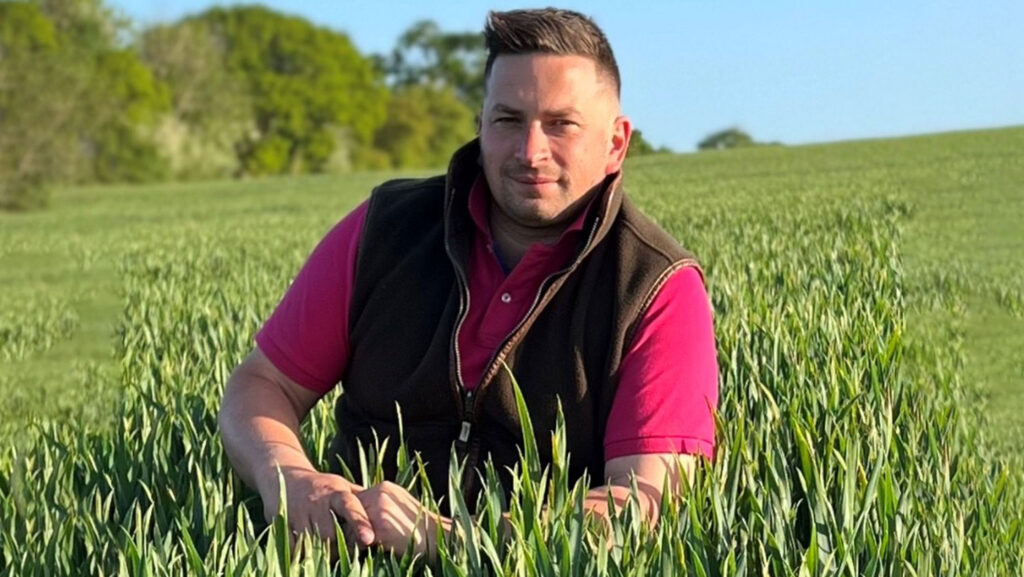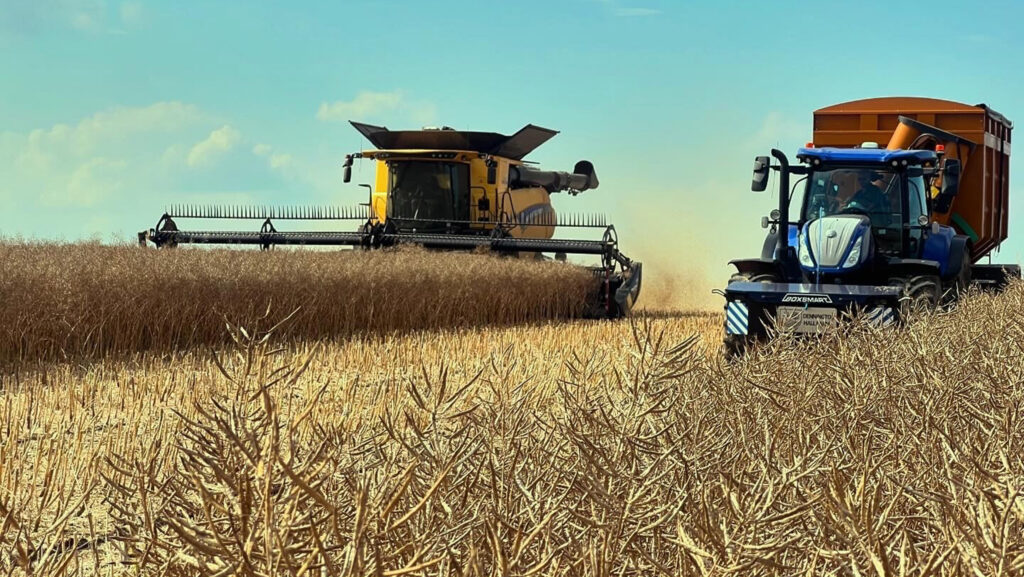100% success rate for companion-cropped oilseed rape
Companion cropping oilseed rape as part of a 12-year rotation resulted in a 100% establishment rate at a farm in Suffolk, with harvest yields just shy of 4t/ha.
A total of 100ha of oilseed rape was successfully planted and combined at Dennington Hall Farms, north of Framlingham. Yields averaged 3.9t/ha with zero crop failures – a stark contrast to the 50% crop loss last season.
Farm manager Ryan McCormack puts the success down to companion cropping, introducing a more diverse rotation, and integrating regenerative agriculture techniques.
“Considering crops were flooded in October, our oilseed rape performed well,” says Ryan, who grew the hybrid varieties Aurelia and Dart. “The companion crop certainly had a positive impact on establishment and yields.”
See also: British harvest ahead of five-year mean, but yields down
New techniques
This harvest marks the first time a companion crop of fenugreek, berseem clover and buckwheat was grown alongside the oilseed rape to promote establishment and reduce pest attacks.
The farm covers 1,200ha, split into 12 blocks of 100ha. It is currently in the second year of a 12-year rotation which sees oilseed rape grown only once.

Ryan McCormack © Ryan McCormack
Ryan says: “We moved away from our traditional four- to five-year rotation based on winter wheat, oilseed rape, barley and sugar beet, in favour of greater diversity and more spring cropping.
“The new rotation means 50% of the farm is down to winter wheat. We are also adding cover cropping, livestock grazing and companion cropping.”
Early establishment
Oilseed rape crops are drilled in the first week of August and this year’s 100ha crop has successfully gone in.
The companion crop is sown first, at a rate of 10kg/ha with a low-disturbance subsoiler, to allow time for the mix to get up and away and disguise the young oilseed rape plants from pests.
“Fenugreek has a curry-like smell which helps deter cabbage stem flea beetle, buckwheat is long and stemmy which deters pigeons, while berseem clover is good for nitrogen fixing,” Ryan says.
The oilseed rape is then drilled 48 hours later at a conventional rate of 75 seeds/sq m using a Horsch Avatar.
“As a result, we only saw small infestations of flea beetle but nothing serious as crops remained strong enough to withstand attack,” he says.
Last year’s crops were drilled with a Vaderstad Rapid, but Ryan is keen to move less soil as part of the farm’s new regenerative approach, which focuses on improving soil health and optimising crop nutrition.

© Ryan McCormack
Healthy crops
A total of 150kg/ha of granular nitrogen was applied, but this season Ryan is transitioning to a liquid system to improve nitrogen use efficiency and tailor foliar micronutrition sprays to crops.
He will apply a sulphur, molybdenum and boron spray at the two- to three-leaf stage – when about 50% of the ground is covered by the crop canopy.
This will give plants a welcome nutrition boost, providing them with the correct armoury to combat potential cabbage stem flea beetle infestations.
Ryan is growing mostly conventional home-saved seed varieties this year, due to the lower seed costs compared with hybrids.
“With such a massive difference in seed costs, we will be playing it safe this year,” he says. “If we have some crop loss, we are mitigating our risk with reduced input costs.
“What’s more, if some of crop fails, the companion crop can be used as a cover crop ahead of spring planting. This way we do not have any bare soil exposed, which also helps reduce risk.”
Cropping of the 12-year rotation
The 12-year rotation under way at Dennington Hall Farms – owned by the Rous family – is made up of: winter wheat, winter wheat, oilseed rape, winter wheat, winter wheat, spring peas or beans, winter wheat, spring barley, sugar beet, winter wheat, winter wheat and, finally, spring oats.

